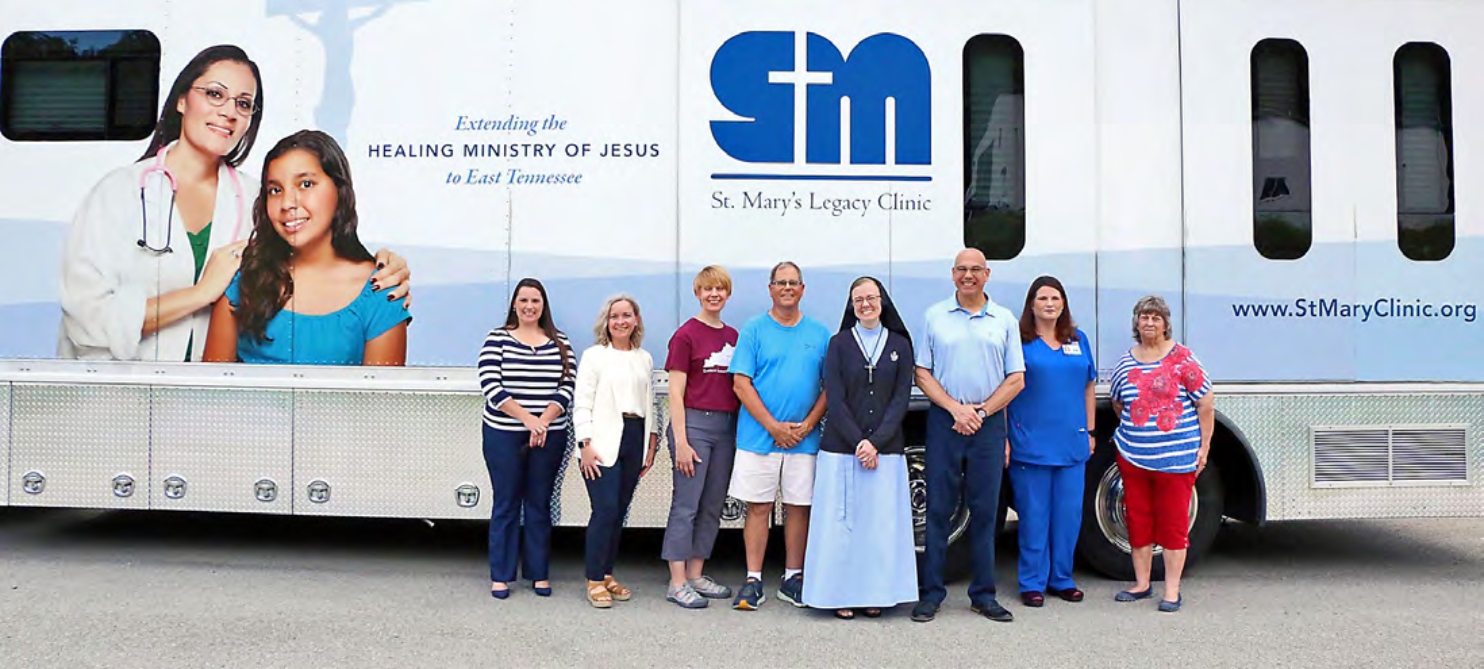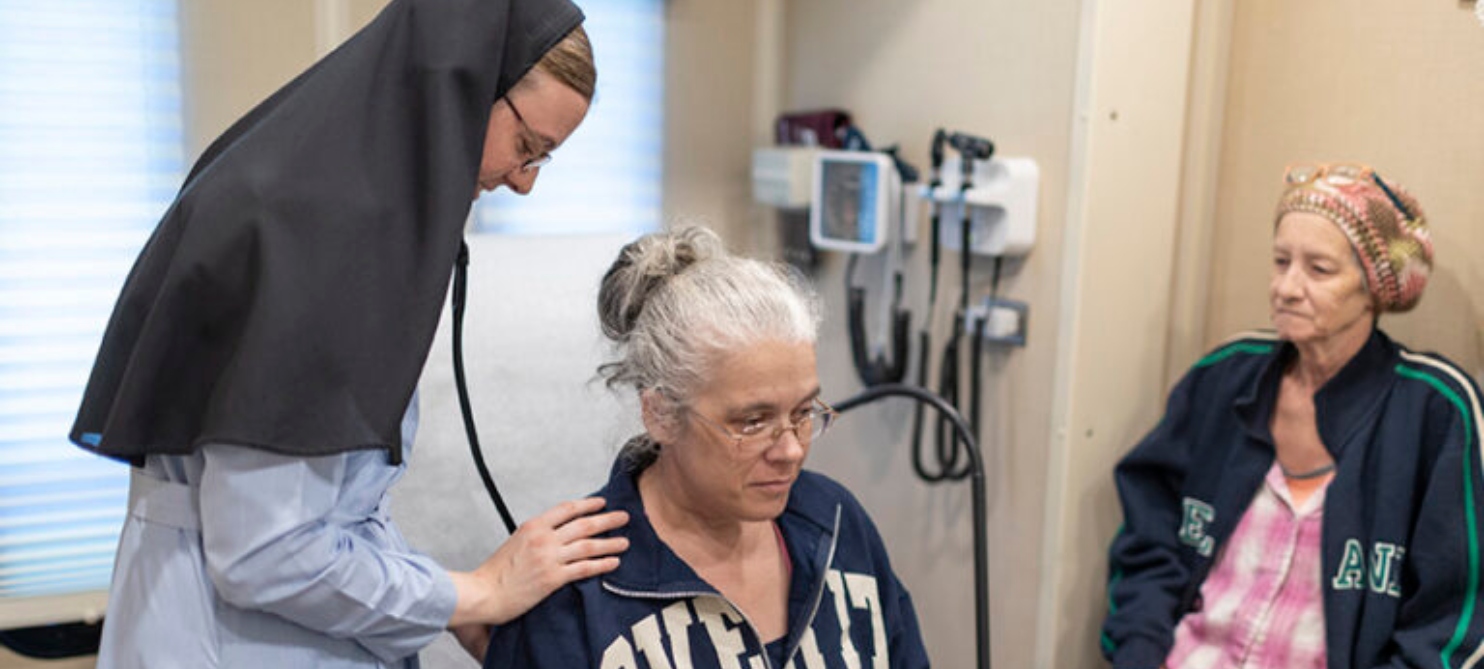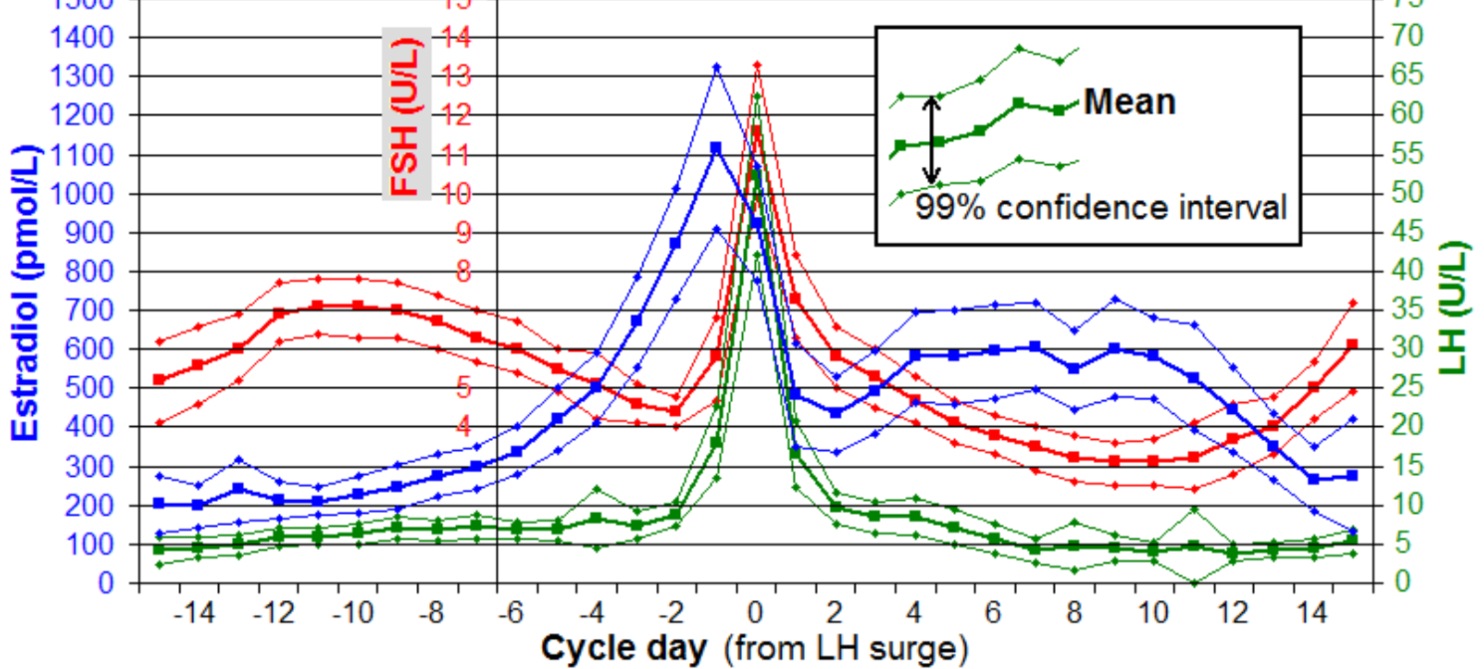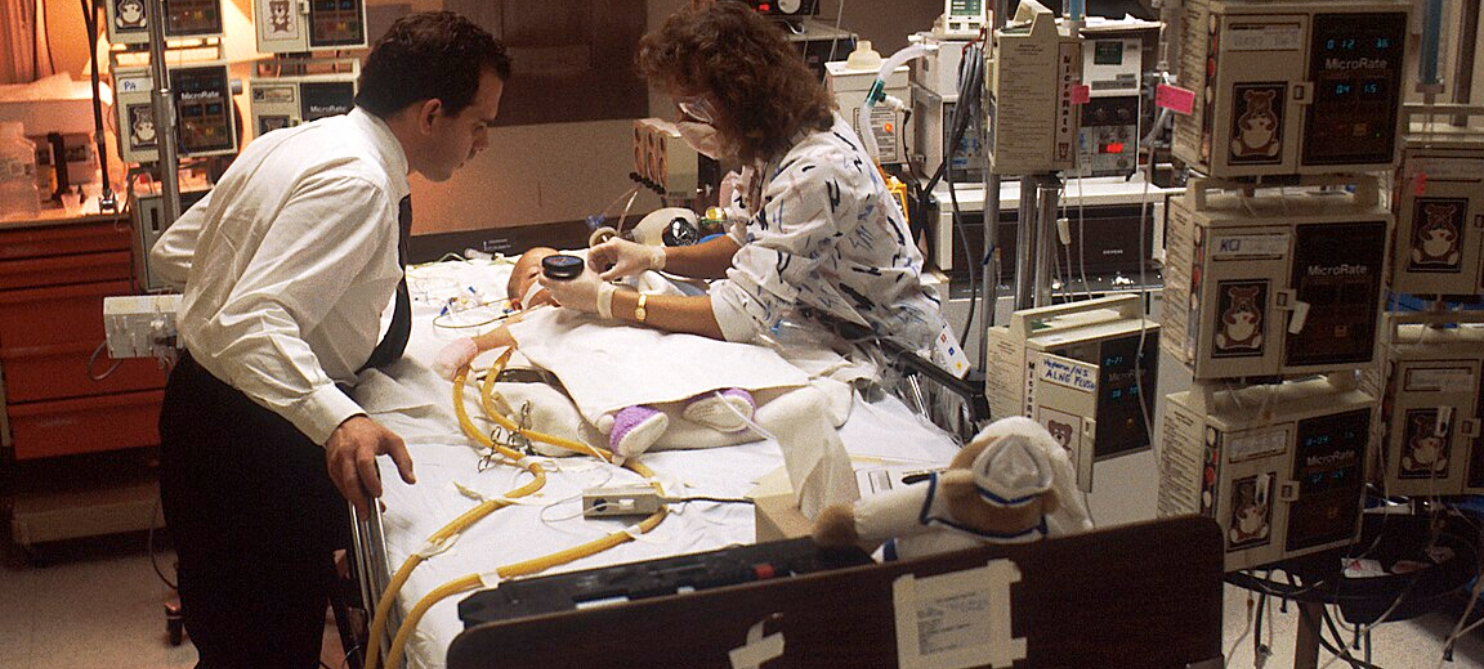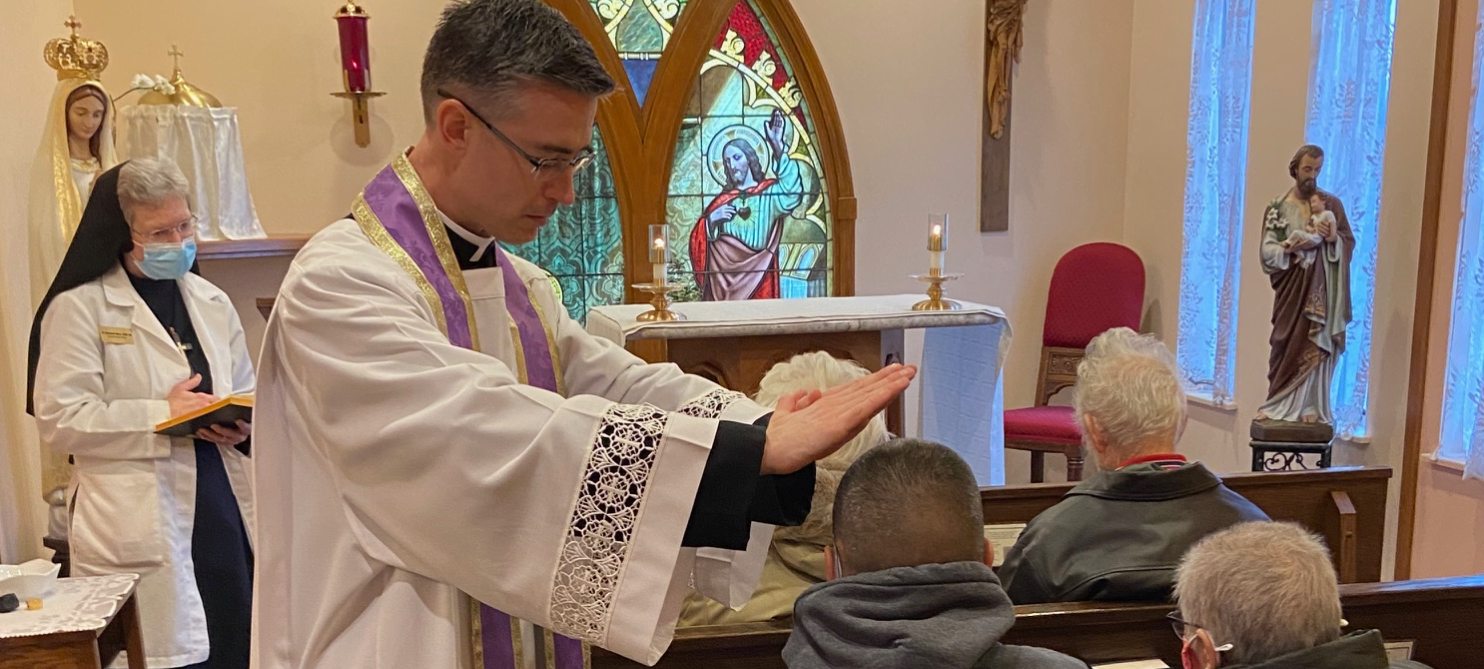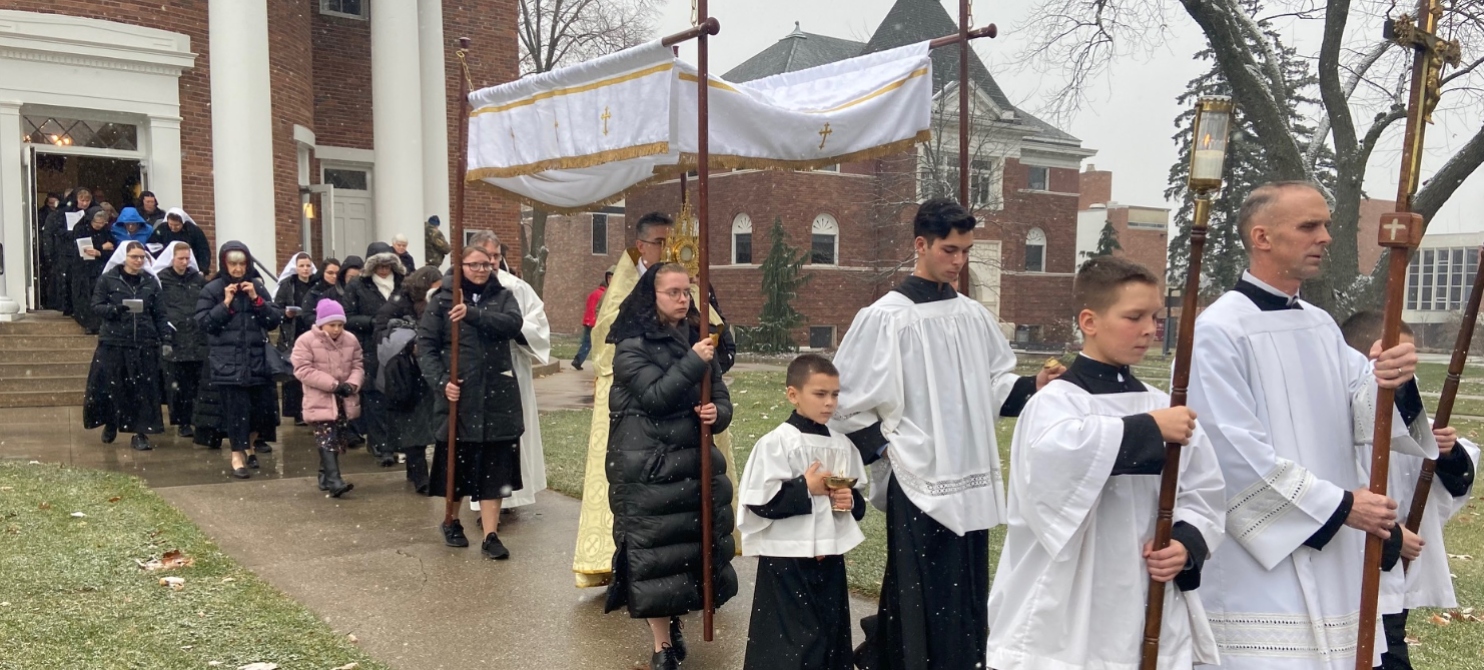One of Mother Catherine’s Little Virtue is forbearance, with an accent to “enduring all things.” The virtue of forbearance helps us to exercise self-control and to put our actions into the right order. How can we also put this into the context of medicine? Let me highlight three common situations.
- An unexpected twist in life. Think about this: Mary has been trying to get into a healthier habit with more physical activities (see 5-2-1-0 blog) and decided to walk around the neighborhood. However, due to unforeseen winter weather, she slipped on ice, fell, and broke her hip. Now, not only she cannot walk, but she also cannot do her daily activities at home.
- The stress of many facets of life. How do I deal with a college student who is experiencing depression, or my child who does not want to attend church services? What about road rage or when being inconvenienced by others?
- Going through a new stage of life. How about just a normal healthy state of life – pregnancy? It is not as easy as many think to have a healthy pregnancy and live birth. Miscarriages occur in up to 15% of recognized pregnancies.[1] The joy of anticipating the birth of a new life is often mixed with the anguish of difficult news about complications with the pregnancy (for both the mother and the baby).
Sound familiar? In each of these examples, we see a distress or an unexpected “roadblock”, whether physically, psychologically with emotional or social distress, spiritually, or a combination of different aspects of life. Yet this is the chance, this is the moment to polish our virtues with exercising self-control and to obtain the prize (c.f. 1 Cor 9:24-25). By choosing to endure the difficulties that come upon us, we develop virtues – since thoughtful, repeated acts lead to formation of a habit, and a virtue is a good and stable disposition (habit) to act for the true good consistently.[2]
Venerable Catherine emphasized that the exercise of forbearance is to endure all things for the sake of Christ. Through forbearance, the love of God overflows into an ability to endure our own sufferings and persevere in a love towards our neighbors. Venerable Catherine McAuley, in Retreat Instructions, is recorded to have said:
His sufferings never caused Him to be sad or gloomy. His countenance was at all times delightful to behold and He was ever pleasing to speak to and ever ready under the sharpest pain to administer to the afflicted. Thus should we endeavor to comport ourselves under any trial we have to endure.
Of course, each of the above scenarios may involve your healthcare providers. Perhaps an orthopedic surgeon to fix a broken hip, a psychologist to assist in counselling and dealing with emotional distress, or a family medicine or OB to assist through particular stages of life. The medical approach is beyond the scope of this blog entry, but regardless of the scenario or the specialty being involved, one thing is key: a partnership between your provider and you, to work with the trials and not to give up.
“What have you endured for His sake?”
– Venerable Catherine McAuley, Retreat Instructions
Learn more about Saint Gianna Molla:
Image credit:
“ST. GIANNA BERETTA MOLLA.” FIAMC: Fédération Internationale des Associations de Médecins Catholiques (CATHOLIC PHYSICIANS THROUGHOUT THE WORLD). Accessed April 19, 2021. https://www.fiamc.org/faith-prayer/saints/st-gianna-beretta-molla/.
[1] Prine LW, MacNaughton H. Office management of early pregnancy loss. Am Fam Physician. 2011 Jul 1;84(1):75-82. PMID: 21766758.
[2] Summa theologica Ia IIae Q49 a1, Ia IIae 55 a4
Posted April 19, 2021





